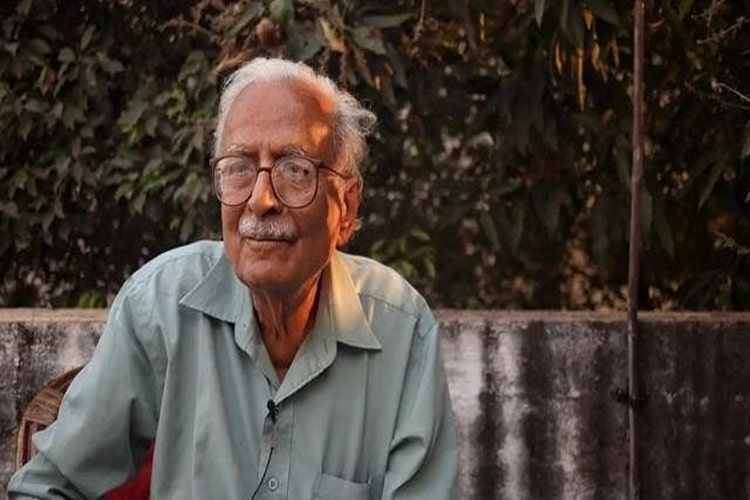Vinod Kumar Shukla (born 1 January 1937) is a modern Hindi writer known for his style that often borders on magic-realism.
Life and Career
Vinod Kumar Shukla was born on 1 January 1937, in Rajnandgaon, Madhya Pradesh.
Shukla’s literary journey began with his education, where he pursued a master’s degree in English literature from Saugar University in Madhya Pradesh.
After completing his education, Shukla embarked on a career as a writer, poet, and novelist. He started his career as a Hindi lecturer at various colleges in Raipur and then moved on to become a professor at Delhi University, where he taught until his retirement.
Shukla’s writing style was characterized by its simplicity and depth, often exploring everyday life and human relationships with a keen observational eye. He published numerous works throughout his career, including novels, short stories, poetry, and essays. Some of his notable works include “Naukar ki Kameez” (The Servant’s Shirt), “Deewar Mein Ek Khidki Rehti Thi” (There Was a Window in the Wall), and “Ardhanaarishwar” (Half-Woman, Half-Man).
Award and Legacy
Vinod Kumar Shukla received several prestigious awards throughout his lifetime. One of the most notable honors he received was the Sahitya Akademi Award, one of India’s highest literary honors, which he received for his novel “Deewar Mein Ek Khidki Rehti Thi” in 1999.
Vinod Kumar Shukla’s legacy extends beyond the awards he received. His writing style, characterized by its simplicity, depth, and keen observation of human life, has left a lasting impact on Hindi literature. Shukla’s works continue to be celebrated for their ability to capture the essence of everyday experiences and emotions, resonating with readers across generations.
Through his novels, short stories, poetry, and essays, Shukla explored themes such as love, longing, loss, and the intricacies of human relationships. His literary legacy serves as an inspiration to aspiring writers and scholars, fostering a deeper appreciation for the richness and diversity of Indian literature.

